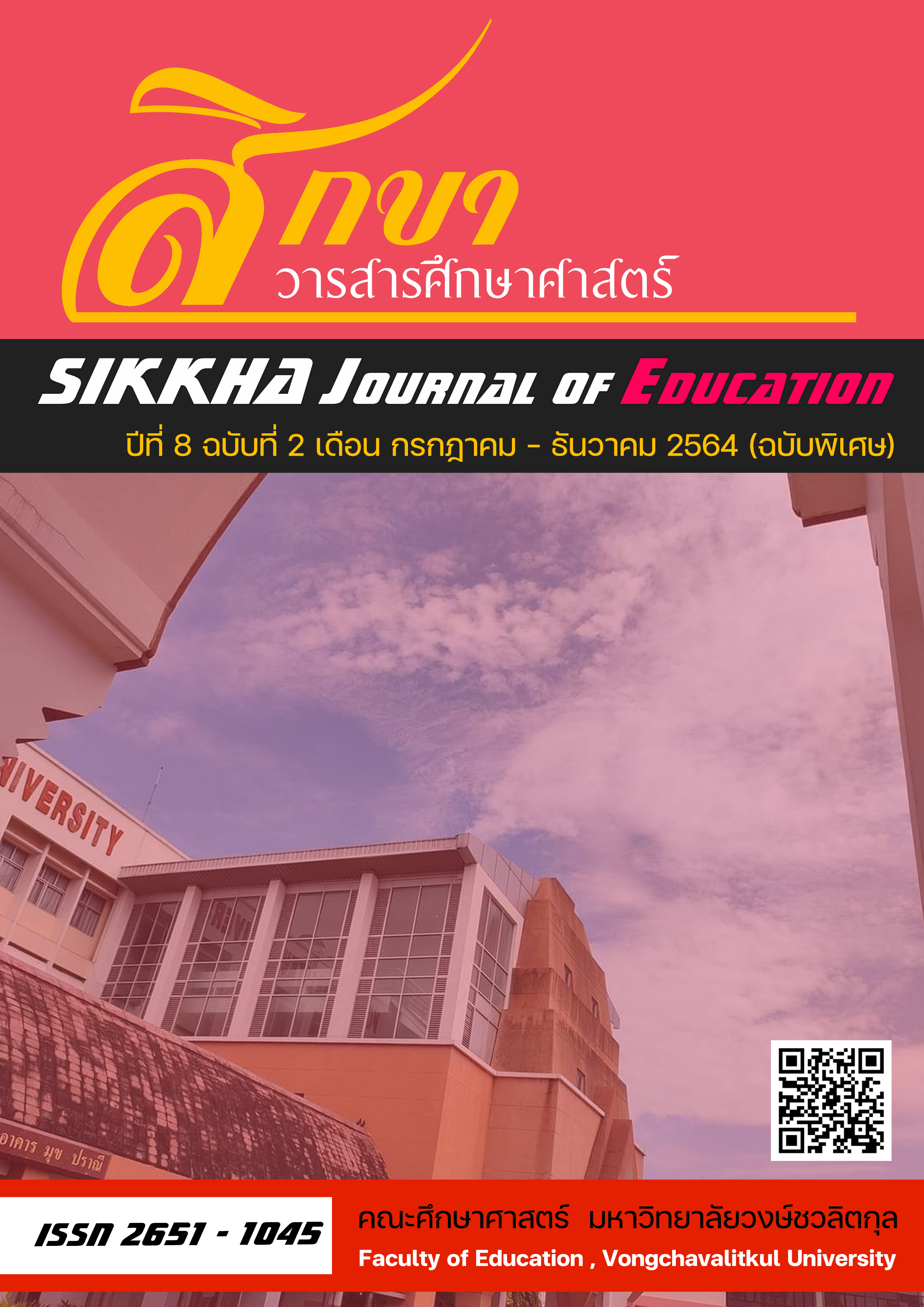A New Paradigm of Dual Vocational Education for Three Southern Border Colleges with Establishments Abroad in the Next Decade (2019-2028)
คำสำคัญ:
Paradigm, Dual Vocational Education, Three Southern Border Provinces, Establishment Abroad, Next Decade (2019-2028)บทคัดย่อ
The objective of this research was to propose the new paradigm for dual vocational education with establishments abroad of colleges in three southern border provinces (Pattani, Yala and Narathiwat Provinces) for the next decade. According to the Office of Vocational Education's dual vocational education regulations, the study revealed that there were general conditions and obstacles according to the educational management process. The key informants were thirty-two key contributors’ qualified persons in the management of the vocational education system. An in-depth semi-structured interview was used to collect the data. In the second phase, interviewing with the dual vocational education experts in the area of three southern border provinces and the representatives from establishments abroad was used to give the perspective towards dual education management with foreign establishments of colleges. It was validated by triangular technique. The research results appeared as a combination of dual education theory with the establishment's needs. Real working conditions became a new paradigm for dual vocational management through the integrative system model for dual education management, including the system approaches. There were input factors including (1) policy goals; (2) learners' attribute; (3) resources for the dual system administration; and (4) domestic labor market demand. The process factor included: (1) administration and organizational management, (2) collaboration, (3) educational management and training, and (4) assessment system and the output delivers of having the graduates who were characteristics of work habits that met the establishment's needs.เอกสารอ้างอิง
Brande, L. V. D. (1993). Flexible and Distance Learning. Chichester: John Wiley and Sons.
Certo, S. C. (2000). Modern Management (8th ed.). New Jersey: Prentice Hall.
Chantawanich, S. (2014). Qualitative Research Methods (22nd ed.). Bangkok: Dan Sutha Printing.
David, S. (1920). Vocational Education. New York: Macmillan.
Fraenkel, J. R., & Wallen, N. E. (2006). How to Design and Evaluate Research in Education (6th ed.).
New York, NY: McGraw-Hill.
Maesincee, S. (2016). Strategy and Reform to Thailand 4.0. Bangkok: Ministry of Education.
Office of the Education Council. (2017). National Education Plan (2017-2036). Bangkok: Office Education Council Secretary.
Office of the Vocational Education Commission. (2008). Vocational Education Act of B.E. 2551 and
Notification of the Ministry of Education, The Standards of Dual Vocational Education Management. Bangkok: Ministry of Education, Ministry of Education.
Office of the Vocational Education Commission. (2012). Policy, Goals, Strategies, Production and Manpower Development; Vocational Education Towards The World 2012-2026. Bangkok: Ministry of Education, Ministry of Education.
Office of the Vocational Education Commission. (2017). Supporting Documents for Dual Education Management. Bangkok: Office of the Vocational Education Commission, Ministry of Education.
Thongpanich, P. (2019). Documents for Teaching Courses, Curriculum Development. Faculty of Education, Nakhonphanom University.
ดาวน์โหลด
เผยแพร่แล้ว
รูปแบบการอ้างอิง
ฉบับ
ประเภทบทความ
สัญญาอนุญาต
ลิขสิทธิ์ (c) 2021 สิกขา วารสารศึกษาศาสตร์

อนุญาตภายใต้เงื่อนไข Creative Commons Attribution-NonCommercial-NoDerivatives 4.0 International License.



